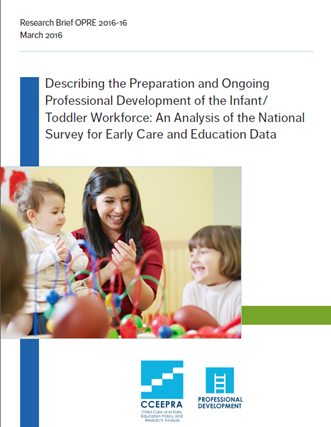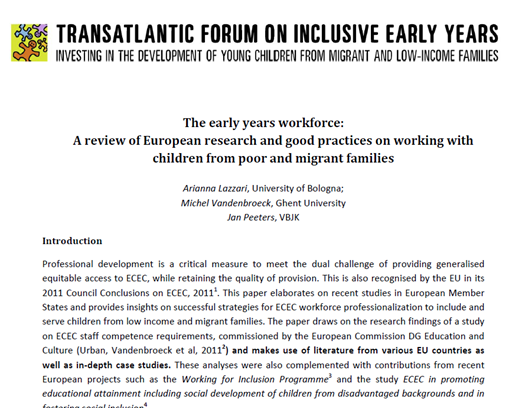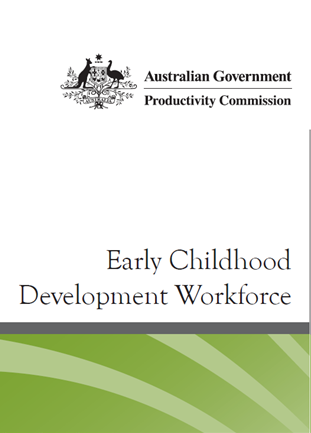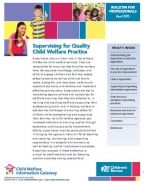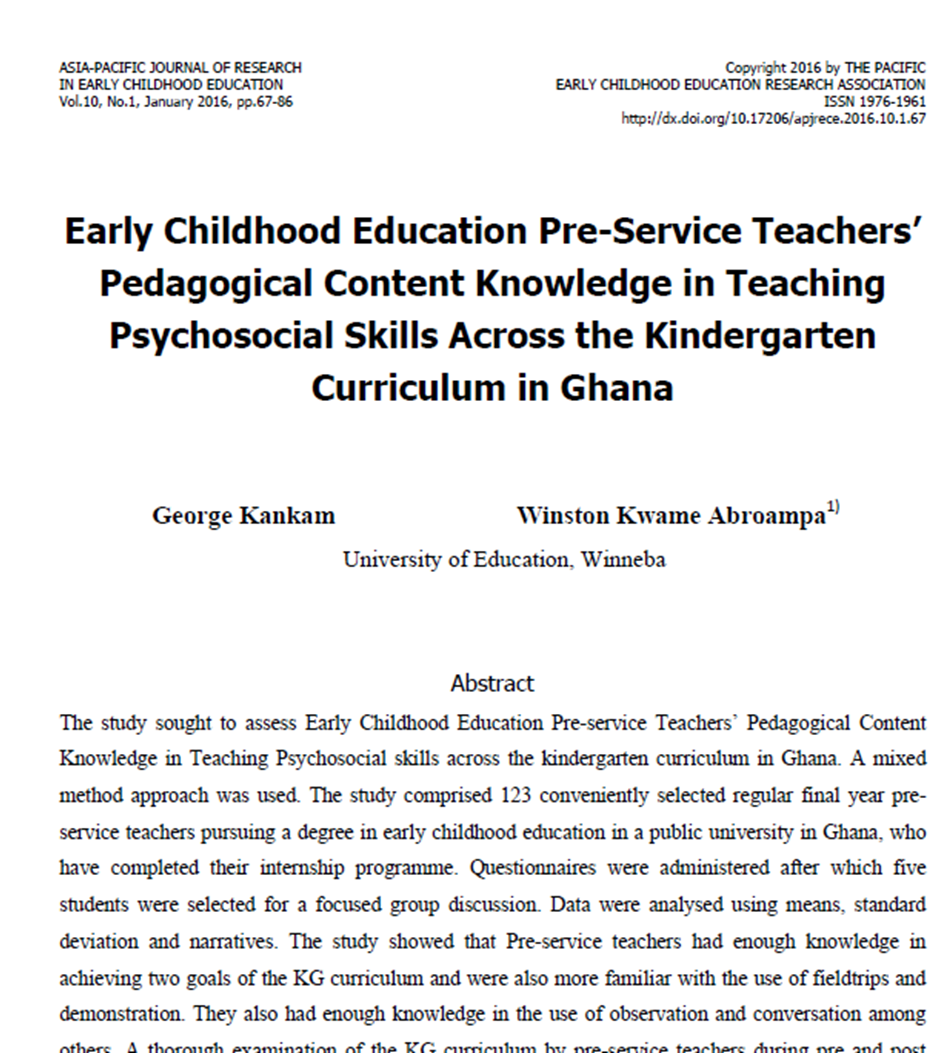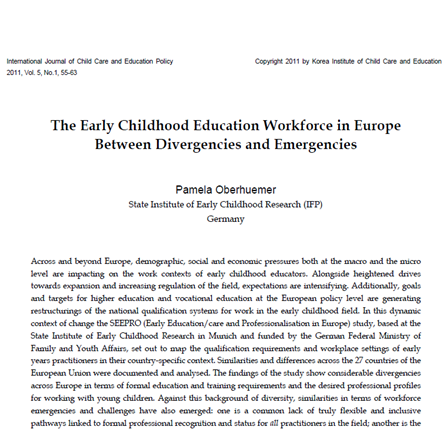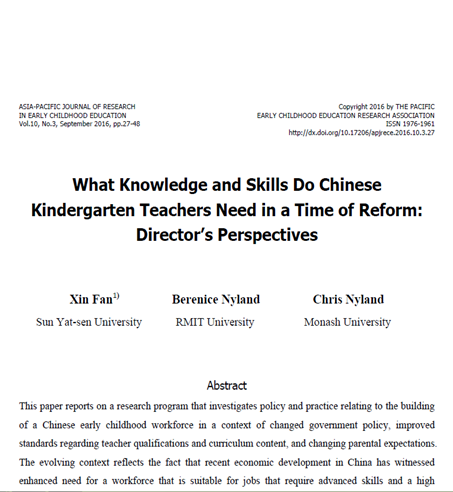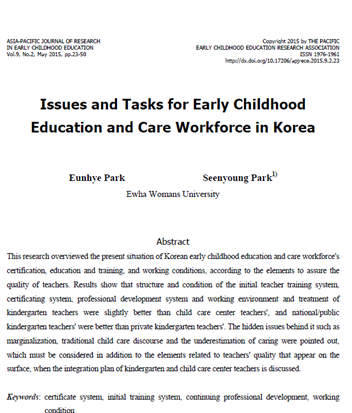Proposal for key principles of a Quality Framework for Early Childhood Education and Care - Report of the Working Group on Early Childhood Education and Care under the auspices of the European Commission
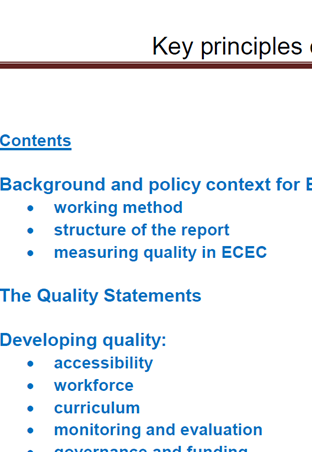
Proposal for key principles of a Quality Framework for Early Childhood Education and Care is the report of the Working Group on Early Childhood Education and Care under the auspices of the European Commission.
The authors of the report focus on which measures have helped Member States address and promote measurable improvements for children, families, local communities and society.
education.ec.europa.eu


